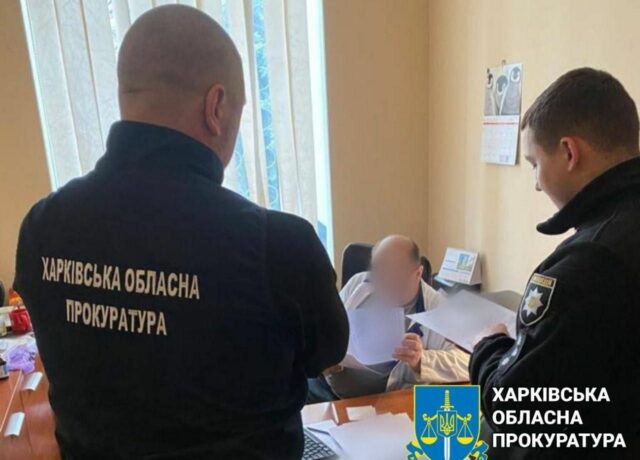The Consequences of Medical Fraud: A Case of a Kharkiv Ophthalmologist
In a concerning turn of events, a prominent ophthalmologist in Kharkiv is set to face trial, accused of undermining the ethical standards of his profession by falsifying medical diagnoses. This case has raised significant questions about integrity in medical practices, particularly in the context of military conscription.
Overview of the Case
The situation came to light when a 40-year-old man approached the doctor, who also serves as the head of a local hospital, seeking a way to avoid military service. Under pressure, the doctor allegedly provided false medical documentation that claimed the patient had vision issues severe enough to exempt him from conscription.
This act of medical dishonesty not only highlights the lengths some individuals may go to avoid serving, but it also tarnishes the reputation of the medical field. The implications are far-reaching, affecting both trust in healthcare professionals and the integrity of military service.
The Stakes Involved
The repercussions for the doctor could be severe. If convicted, he faces a prison sentence of up to five years for facilitating the evasion of military duty through fraudulent means. This situation serves as a stark reminder of the potential legal consequences of unethical behavior in a profession held in high regard.
Real-World Implications: Why This Matters
Fraudulent practices in healthcare are not isolated incidents. A study from the National Health Care Anti-Fraud Association estimates that healthcare fraud costs the United States alone up to $68 billion annually. When medical professionals like this ophthalmologist provide false information, it not only undermines the regulatory systems in place but also puts added strain on resources and societal expectations.
Unique Insights and Recommendations
As we reflect on this case, it is crucial to consider its broader implications. Here are some key takeaways:
- Trust is Essential: For healthcare systems to function effectively, patients must trust that doctors will act ethically and in their best interests. Instances of fraud erode this trust.
- Accountability Matters: Holding medical professionals accountable for their actions is vital. Continued scrutiny and legal repercussions can deter future violations.
- Ethical Training: Incorporating more robust ethical training for medical professionals can foster a culture where honesty prevails over personal gain.
In conclusion, the trial of this Kharkiv ophthalmologist serves as an important case study in medical ethics. It reminds us that the choices made by healthcare providers can have profound implications, not just for individuals but for society as a whole. Moving forward, it’s crucial to advocate for transparency and integrity in medicine, ensuring that the trust between patients and doctors remains unbroken.






